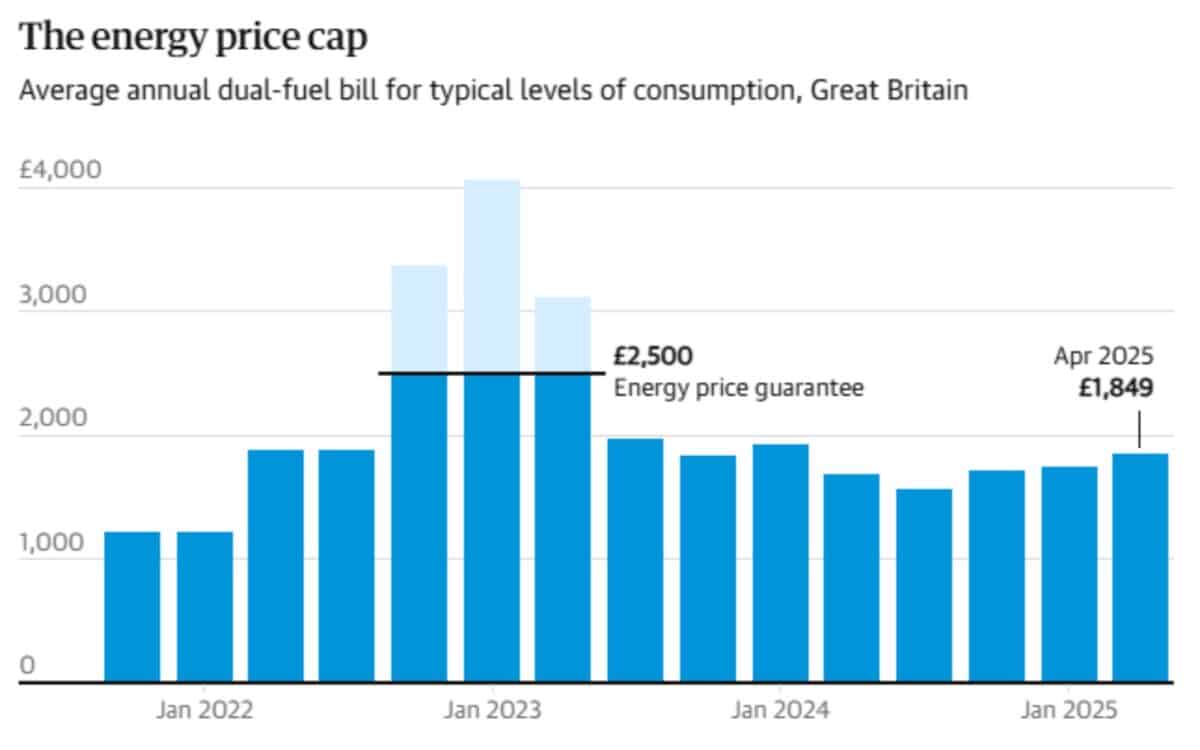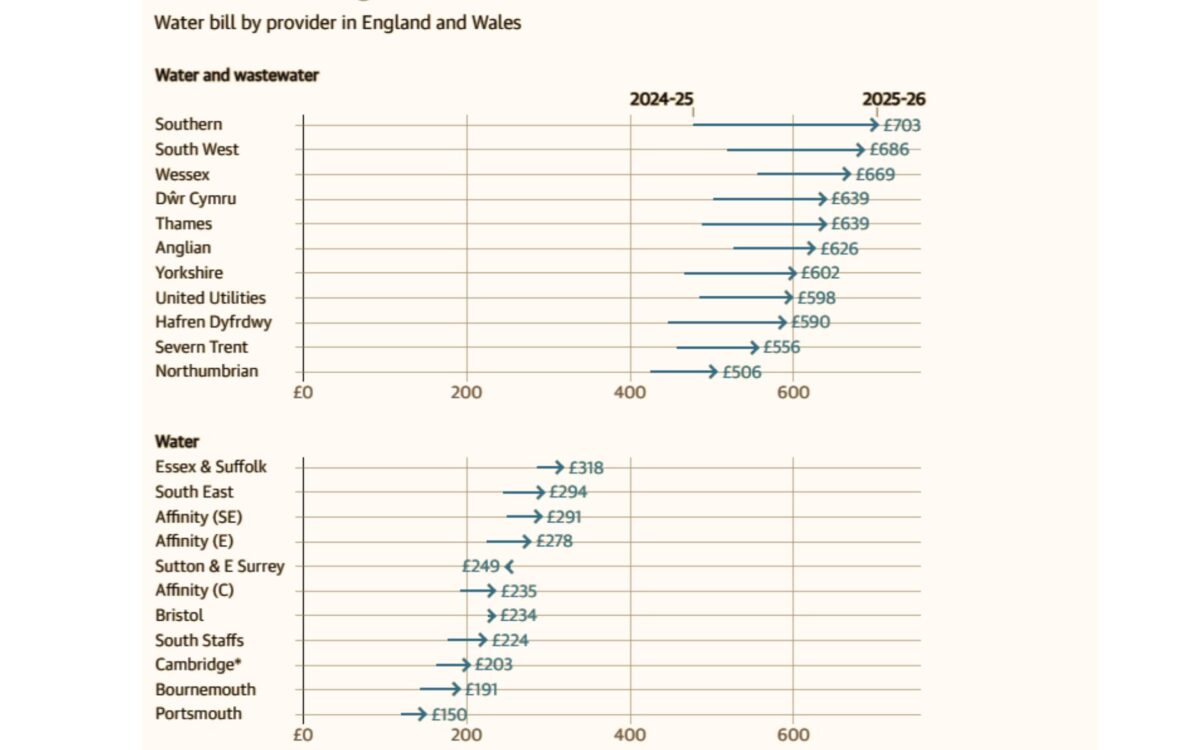Millions of UK households are starting April with a wave of bill increases affecting everyday essentials like energy, water, and council tax. As costs mount across multiple sectors, pressure is growing on ministers to respond.
According to The Guardian, the scale and timing of these hikes have led some to label the month “awful April”. With living expenses set to rise for millions, questions are being raised about the government’s long-term strategy and whether support for the most vulnerable is keeping pace.
The coming weeks may prove challenging for both consumers and policymakers navigating this latest round of inflationary pressure.
Energy Prices Rise Again Under Ofgem Cap
Starting Tuesday, the average household energy bill will rise by 6.4%, or £111 annually, bringing the typical dual-fuel bill to £1,849. This marks the third consecutive rise and leaves energy costs approximately £600 higher than before the Russia–Ukraine conflict began in 2022.
Roughly 9 million households on variable tariffs will be affected immediately. The Liberal Democrats have sharply criticized the increase, citing survey data showing the “majority of Brits think their energy bill is bad value for money”.

Party leader Ed Davey warned that with families facing “spiralling” costs, the government must “get a grip on energy bills, and fast”. The party is also calling for a national social tariff to protect vulnerable people, including pensioners who lost their winter fuel payments last year.
The Social Investment Business charity has also raised concerns, stating that rising utility bills are consuming up to half the budgets of organizations serving children and young people, threatening their long-term viability.
Water Bills See Steep Regional Disparities
Households in England and Wales are experiencing an average 26% increase in water bills, equivalent to £123 annually. The average bill is now £603, up from £480. The extent of the rise varies by provider. For example, customers of Southern Water, which serves parts of Hampshire and Kent, face an increase of nearly 47%.

Council tax has risen across the UK. In England, the average band D property will now be charged £2,280, a 5% increase. Several councils received special permission from the government to exceed the national cap.
Notably, Bradford in West Yorkshire will raise rates by 9.99%, while Newham in East London will increase them by 8.99%.In Scotland, most households will see council tax increases of at least 7.5%, while in Wales, the average band D increase is projected at 7.2% for the year.
Vehicle Tax and TV Licence Costs Edge Upward
Annual car tax for post-2017 vehicles has increased by £5, bringing the total to £195. Similarly, the TV licence fee has risen by £5, from £169.50 to £174.50. Though modest, these additions contribute to the cumulative rise in household expenses.
Telecommunications costs are also rising. According to Uswitch, broadband and mobile customers on inflation-linked contracts will pay an additional £21.99 per year on average. Those on newer contracts taken out after rule changes in January 2024 may face increases of up to £42 annually.
Government Response Focuses on Long-Term Support
Responding to the Liberal Democrats’ criticism, Miatta Fahnbulleh, Minister for Energy Consumers, acknowledged the pressure on households:
This is obviously a worrying time for families across the UK, which is why we remain determined to get bills down in the long term.
She added :
As we build up our homegrown power, we are doing everything we can to support people with their bills – from proposing to expand the £150 warm home discount to around six million households next winter, to upgrading thousands of homes so they are warmer and cost less to heat.
In the meantime, consumer advocacy groups are advising households to review their options, including switching to fixed energy tariffs, checking eligibility for council tax reductions, and seeking assistance with water bills where applicable.









